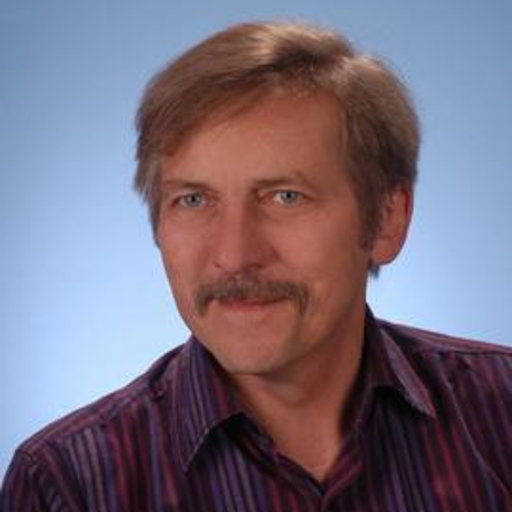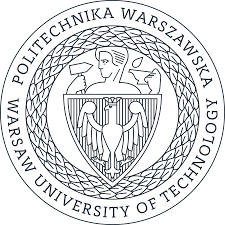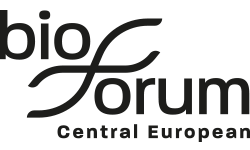Symposium of the Polish Bioinformatics Society 2024 — Keynote speakers
We are delighted to present you with the keynote speakers (alphabetical order) for the PTBI Symposium 2024
- Prof. Andrzej Koliński, University of Warsaw, Poland
- Prof. Fritz Sedlazeck, Baylor College of Medicine, USA
- Prof. Ewa Szczurek, University of Warsaw, Poland and Helmholtz Munich, Germany
- Tomasz Zemojtel, Ph.D, Amazon Web Services, Germany
Prof. dr hab. Andrzej Koliński, University of Warsaw, Poland
 |
Professor Andrzej Koliński graduated from the Department of Chemistry, University of Warsaw, and has been permanently associated with this department. At the same time, he worked in several scientific institutions in the United States. |
He was a Visiting Associate Professor at the Department of Chemistry of Washington University in Saint Louis (1985-1989), Associate Professor (Adjunct Member) at the Scripps Research Institute in La Jolla, California (1990-1999), Professor at Donald Danforth Plant Science Center in Saint Louis (1999-2002), Professor at Center of Excellence in Bioinformatics of State University of New York in Buffalo (2002-2003), and Adjunct Professor at L. H. Baker Center for Bioinformatics and Biological Statistics, Iowa State University, Ames, Iowa (2004-2005).
Since 1998 he has been the head of fond for him Laboratory of Theory of Biopolymers at the Chemistry Department of the University of Warsaw.
The main field of scientific activity of Professor Koliński is the development of multiscale modeling tools for the simulation of complex bio-macromolecules, especially proteins and their complexes. Publications of his work have been cited by other researchers over ten thousand times.
Professor Koliński's scientific activity has been distinguished by several awards, including the International Scholar’s Award of the Howard Hughes Medical Institute, the Prize of Foundation for Polish Science in Life Science and Medicine, and the Gold Cross of Merit (Poland)
Title of a talk: Coarse-Grained protein modeling
Abstract
The traditional computational modeling of protein structure, dynamics, and interactions remains difficult for many protein systems. This is mostly due to the size of protein conformational spaces and required simulation timescales that are still too large to be studied in atomistic detail. Lowering the level of protein representation and/or simplification of the force field opens up new possibilities for studying protein systems. Coarse-grained models (1) are computationally more effective and enable simulations of much longer time scales and/or larger sizes of the systems studied. Moreover, well-designed coarse-grained models of a not-too-low resolution enable reasonable reconstruction of modeled structures to all-atom resolution. This way efficient multiscale simulations of important biomolecular processes become possible. I will focus on the CABS model designed 20 years ago (2) and consistently improved in my laboratory. The CABS modeling tools use discrete representations of conformation space, statistical (knowledge-based) potentials, and Monte Carlo dynamics sampling schemes, applied to the single or multiple replicas of modeled objects. CABS model is unique and its flaws and advantages are discussed. The model can be efficiently used for simulations of protein folding (3), molecular docking (4), and large-scale dynamics (5). Finally, possible integrations of the CABS method with AI tools are briefly indicated.
- S. Kmiecik, D. Gront, M. Kolinski, L. Wieteska, A. Dawid & A. Kolinski, “Coarse-grained protein models and their applications”, Chemical Reviews 116(14) 7898–7936 (2016)
- A. Kolinski, “Protein modeling and structure prediction with a reduced representation”, Acta Biochimica Polonica 51:349-371 (2004)
- M. Blaszczyk, M. Jamroz, S. Kmiecik & A. Kolinski, “CABS-fold: server for de novo and consensus-based prediction of protein structure” Nucleic Acids Research 41(W1):W406-W411 (2013)
- M. Kurcinski, M. Jamroz, M. Blaszczyk, A. Kolinski & S. Kmiecik, “CABS-dock: web server for flexible docking of peptides to proteins without prior knowledge of the binding site”, Nucleic Acids Research 43(W1): W419-W424 (2015)
- Aleksander Kuriata, Aleksandra Gierut, Tymoteusz Oleniecki, Maciej Ciemny, Andrzej Kolinski, Mateusz Kurcinski, Sebastian Kmiecik, “CABS-flex 2.0: a web server for fast simulations of flexibility of protein structures”, Nucleic Acids Research, 46(W1):W338-W343 (2018)
Prof. Fritz Sedlazeck, Baylor College of Medicine, USA
 |
Dr. Fritz Sedlazeck is an Associate Professor at Baylor College of Medicine and an adjunct Associate Professor at Rice University. He is leading a research group since 2017 at the Human Genome Sequencing Centre at Baylor College of Medicine. His research focuses on developing computational methods to detect and analyze genomic variations with a focus on Structural Variations. Structural Variations are genomic events that manipulate multiple positions in a genome, which impact evolution, genomic disorders, regulation as well as play an important role in explaining multiple phenotypes. Dr. Sedlazeck groups focuses on the mechanisms of the formation of SV across multiple species and to improve our understanding how these complex alleles evolve and impact phenotypes. Over the past years, Dr. Sedlazeck lead multiple efforts from large scale short reads (e.g. Topmed, CCDG) to long reads (CARD, All of US) to study SV occurrence, impact and mechanism of SV. |
Title of a talk: Fantastic world of tandem repeats and how to characterize them
Abstract
Tandem repeats are hard to assess but important regions on the human genome. There are around 200 pathogenic and phenotypic tandem repeats, which are often ignored by standard analysis. Furthermore, these tandem repeats are utilized in crime scene investigations. Given the impact of these regions, it is important that we learn more about these regions of the human genome and their role in diseases and other traits.
Prof. Ewa Szczurek, University of Warsaw, Poland and Helmholtz Munich, Germany
 fot. Anna Amarowicz/pulsar fot. Anna Amarowicz/pulsar |
Ewa Szczurek is the director of the Institute of AI for Health at Helmholtz Munich, Germany (from Feb 2024), and associate professor at the Faculty of Mathematics, Informatics and Mechanics of the University of Warsaw, Poland, and leads joint labs at these two institutions. She was a visiting associate professor at Northwestern University in the United States (2023) and a visiting fellow at the Center for Interdisciplinary Research, Bielefeld, Germany (2016). She holds Master degrees in computer science from the University of Warsaw, Poland (2006) and Uppsala University, Sweden (2005). She obtained her doctoral degree from the Max Planck Institute for Molecular Genetics in Berlin (2011), followed by a postdoctoral fellowship in Switzerland at ETH Zurich. Ewa Szczurek was a recipient of the distinction, scientific and didactic awards from the Rector of the University of Warsaw, as well as ETH Zurich and IMPRS fellowships for her postdoctoral and doctoral research. She acts as a program committee member for the ISMB and RECOMB-CCB conferences, as well as associate editor for Genome Biology. Her research focuses on artificial intelligence, in particular probabilistic graphical models and deep generative models, and their applications in computational medicine. Her specific applications include oncology, pulmonology and the AI-driven design of antimicrobial peptides, a work for which she was recently awarded the ERC Consolidator grant. |
Title of a talk: Modeling spatial omics profiles of tumor microenvironments
Abstract
Recent development of spatial omics techniques enabled high resolution profiling of the transcriptome and proteome of the tumor microenvironment. However, the spatial data poses several challenges, from the identification of cell types and cander clones, through discovery of spatial niches, to the determination of tumor infiltration patterns. In my talk, I will present methods developed in my lab that tackle these challenges. We apply our methods to data from prostate, breast and lung cancer samples, identifying interesting spatial signals in those cancers.
Tomasz Zemojtel, Ph.D., Amazon Web Services, Germany
 |
Dr. Tomasz Zemojtel is a Business Development Manager at Amazon Web Services (AWS), where he helps healthcare, academia and life science organizations leverage cloud computing to drive innovation and accelerate research. Before joining AWS, he was the Head of Genomics Platform at the University Hospital Charité in Berlin. He obtained his Master's degree in Computer Science from the Technical University of Gdansk in Poland and his Doctoral Degree from the University of Heidelberg in Germany. Tomasz Zemojtel pursued a significant part of his postdoctoral research at the Max Planck Institute for Molecular Genetics in Germany. Dr. Zemojtel has done research on topics ranging from genomics, computational biology, molecular evolution, cancer genomics, and medical genetics. More recently, his focus is on computing for healthcare and life sciences, bridging the gap between cutting-edge research and practical applications in precision medicine and healthcare. He is a strong advocate for using cloud computing to unlock the potential of clinical big data and advance personalized treatment approaches. |
Title of a talk: Generative AI in Health
Abstract
In a rapidly evolving landscape where the state of the art for generative AI changes weekly, the healthcare sector stands to benefit significantly from these advancements. Recent continuous developments, such as the release of Claude 3.5 by Anthropic, have demonstrated the potential of generative AI to outperform previous models like GPT-4 and Gemini 1.5, while dramatically reducing costs. However, to fully leverage the capabilities of GenAI, healthcare organizations need a robust data strategy encompassing data access, pipelines, and repository governance. Immediate applications, such as clinical documentation, speech recognition, and data structuring, have already shown remarkable results in improving efficiency and care quality. Furthermore, integrating GenAI with healthcare-specific data sets enables organizations to create tailored applications that deliver greater business value and patient outcomes. Examples include intelligent chatbots, automatic code generation, and summarizing complex medical narratives. In research, GenAI streamlines data management and accelerates clinical trial matching, while for patient engagement, it provides innovative tools for self-triage and personalized communication. The future of healthcare lies in adopting these transformative technologies, driven by data unique to each organization’s needs and capabilities. This talk will explore the strategic approaches and real-world applications of GenAI in health, highlighting both current trends and future possibilities.
Conference menu
- Main page
- Conference scope
- Program & Book of Abstracts
- Important dates
- Keynote speakers
- Instructions for authors
- Registration and Abstract submission
- Conference fees
- Conference Venue and Arrival
- Social Programme
- Organizing committee and contact
- Program Committee
Sponsors and partners





